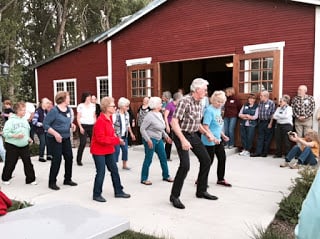If you or someone you love is a senior citizen, you might be worried about mental illnesses such as depression and anxiety. These late-onset mental illnesses are scary, but there are ways to help prevent them. The activities associated with preventing anxiety and depression can significantly improve the quality of life of the elderly.

Mental Illness in the Elderly
On average, about 20% of the elderly population in this country suffers from mental illness, roughly the same as the national average across all age groups. According to the World Health Organization, about 5% of senior citizens suffer from depression and about 4% suffer from anxiety. Fortunately, senior citizens living independently are at relatively low risk for mental illness. However, senior citizens living with caregivers or in facilities are at high risk for anxiety and depression. Because these elderly people can sometimes feel out of control of their own life, and because they often don’t have anything to keep their minds occupied, they are especially prone to depression and anxiety. To exacerbate the issue, doctors often overlook depression in seniors. Since 80% of senior citizens suffer from at least one chronic condition, most medical professionals are more focused on physiological illness. Luckily there are simple measures that can be taken to prevent and deal with common mental illnesses such as depression and anxiety.

Activities that Prevent Illness
There are ways to prevent mental illness before it happens, as well as help deal with illness once it has happened. The first and most often cited activity to prevent depression and anxiety is physical exercise. This includes movement of any intensity that improves blood circulation and releases hormones such as endorphins. Another activity that can help is crafting, as it allows people to relate to the outside world, gives them the satisfaction of creating something, and gives them a feeling of accomplishment. Similar to arts and crafts, playing games keeps the brain engaged and stimulated. Games with lots of rules, such as card games, are also good for the memory. Crafts and games ensure that the participant is active in their own life by creating a feeling of accomplishment. Games also provide an excellent opportunity for socialization, another activity that can prevent depression.
Communication and socialization, whether it’s with friends or family, help people keep perspective and keep their spirits up. Time spent in solitude can increase the risk of depression and anxiety. Socialization, especially when it includes touch (such as hugging), can release oxytocin in the brain, another chemical that is involved in happiness. Laughter also releases chemicals that cause happiness. Finally, getting involved in the community with volunteer work or taking a class can help keep you engaged and stimulated. The key to avoiding mental illness is to keep yourself busy and happy.

Our Solution
At Idaho State University, we’re interested in helping the senior citizens of our community stay engaged and healthy. In Meridian and Pocatello, we offer a program called New Knowledge Adventures and in Idaho Falls we have a similar program called Friends for Learning. These programs include classes and activities for those over 50 who want to remain engaged. These activities include crafts, music, dancing, fitness, games, meditation, nutrition, and classes in literature and history. To find out more about these programs, call us at 208- 282-3372 or visit our website at cetrain.isu.edu/enrollment/lifelong-learning/.

.png?width=220&name=Do%20You%20Pocatello%20Podcast_%20(1).png)
